- Clone
- MC-813-70 (See other available formats)
- Regulatory Status
- RUO
- Other Names
- Stage-Specific Embryonic Antigen-4, SSEA4
- Isotype
- Mouse IgG3, κ
- Ave. Rating
- Submit a Review
- Product Citations
- publications
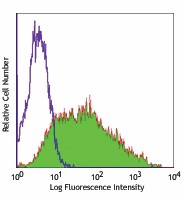
-

Human teratocarcinoma cell line, NCCIT, stained with purified MC-813-70, followed by anti-mouse IgG PE -

NTERA-2 cells were fixed with 4% paraformaldehyde (PFA) for 10 minutes, permeabilized with 0.5% Triton X-100 for 5 minutes, and blocked with 5% FBS for 30 minutes. Then the cells were intracellularly stained with 2.5 µg/mL SSEA-4 Antibody (MC-813-70) and followed by DyLight™ 594 goat anti-mouse IgG (red) for one hour at room temperature. Actin filaments were labeled with Alexa Fluor® 488 Phalloidin (green). Nuclei were counterstained with DAPI (blue). The image was captured with a 40X objective.
| Cat # | Size | Price | Quantity Check Availability | Save | ||
|---|---|---|---|---|---|---|
| 330401 | 25 µg | £89 | ||||
| 330402 | 100 µg | £185 | ||||
The MC813-70 antibody reacts with a carbohydrate antigen which is named as Stage-Specific Embryonic Antigen-4 (SSEA-4). It is a terminal structure of globo-series glycolipids (NeuAcα2-3Galβ1-3GalNAcβ1-R). SSEA-4 is expressed on human teratocarcinoma cells (EC), embryonic stem cells (ESC), embryonic germ cells (EG), and preimplantation embryos, subset of mesenchymal stem cells, erythrocytes, and erythromyeloid leukemia cell line K562. The expression of SSEA-3 on human ESC is downregulated upon differentiation. SSEA-4 is also expressed by mouse on unfertilized eggs and preimplantation to early cleaved embryos.
Product DetailsProduct Details
- Verified Reactivity
- Human
- Reported Reactivity
- Mouse, Baboon, Cynomolgus, Rhesus
- Antibody Type
- Monoclonal
- Host Species
- Mouse
- Immunogen
- Human embryonic carcinoma cell line 2102Ep
- Formulation
- Phosphate-buffered solution, pH 7.2, containing 0.09% sodium azide with stabilizer.
- Preparation
- The antibody was purified by affinity chromatography.
- Concentration
- 0.5 mg/ml
- Storage & Handling
- The antibody solution should be stored undiluted between 2°C and 8°C.
- Application
-
FC - Quality tested
ICC - Verified
IHC-P, IHC-F, ELISA - Reported in the literature, not verified in house - Recommended Usage
-
Each lot of this antibody is quality control tested by immunofluorescent staining with flow cytometric analysis. For flow cytometric staining, the suggested use of this reagent is ≤ 0.5 µg per million cells in 100 µl volume. For immunocytochemistry, the suggested use of this reagent is 1.0 - 5.0 µg per ml. It is recommended that the reagent be titrated for optimal performance for each application.
- Application Notes
-
Additional reported applications (for the relevant formats) include: ELISA1 and immunohistochemistry1 of acetone-fixed frozen tissue sections and formalin-fixed paraffin-embedded sections.
-
Application References
(PubMed link indicates BioLegend citation) -
- Kannagi R, et al. 1983. The EMBO J. 2:2355
- Product Citations
-
- RRID
-
AB_1089208 (BioLegend Cat. No. 330401)
AB_1089208 (BioLegend Cat. No. 330402)
Antigen Details
- Structure
- Carbohydrate epitope on glycosphingolipids
- Distribution
-
Human teratocarcinoma cells (EC), embryonic stem cells (ESC), embryonic germ cells (EG), preimplantation embryos, and erythrocytes; mouse oocytes, early cleaved embryos
- Function
- Regulation of differentiation
- Cell Type
- Embryonic Stem Cells, Mesenchymal Stem Cells, Neural Stem Cells
- Biology Area
- Cell Biology, Immunology, Neuroscience, Neuroscience Cell Markers, Stem Cells
- Antigen References
-
1. Kannagi R, et al. 1983. The EMBO J. 2:2355
2. Henderson JK, et al. 2002. Stem Cells. 20:329
3. Brimble SN, et al. 2007. Stem Cells. 25:54
4. Battula VL, et al. 2007. Differentiation. 75:279 - Gene ID
- NA
- UniProt
- View information about SSEA-4 on UniProt.org
Related Pages & Pathways
Pages
Related FAQs
Other Formats
View All SSEA-4 Reagents Request Custom Conjugation| Description | Clone | Applications |
|---|---|---|
| Purified anti-human SSEA-4 | MC-813-70 | FC,ICC,IHC-P,IHC-F,ELISA |
| Biotin anti-human SSEA-4 | MC-813-70 | FC |
| PE anti-human SSEA-4 | MC-813-70 | FC |
| Alexa Fluor® 647 anti-human SSEA-4 | MC-813-70 | FC |
| FITC anti-human SSEA-4 | MC-813-70 | FC |
| Alexa Fluor® 488 anti-human SSEA-4 | MC-813-70 | FC |
| Alexa Fluor® 594 anti-human SSEA-4 | MC-813-70 | ICC |
| PE/Dazzle™ 594 anti-human SSEA-4 | MC-813-70 | FC |
| APC anti-human SSEA-4 | MC-813-70 | FC |
| PE/Cyanine7 anti-human SSEA-4 | MC-813-70 | FC |
| TotalSeq™-B1467 anti-human SSEA-4 Antibody | MC-813-70 | PG |
Customers Also Purchased
Compare Data Across All Formats
This data display is provided for general comparisons between formats.
Your actual data may vary due to variations in samples, target cells, instruments and their settings, staining conditions, and other factors.
If you need assistance with selecting the best format contact our expert technical support team.
-
Purified anti-human SSEA-4
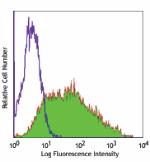
Human teratocarcinoma cell line, NCCIT, stained with purifie... 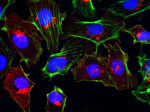
NTERA-2 cells were fixed with 4% paraformaldehyde (PFA) for ... -
Biotin anti-human SSEA-4
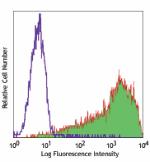
Human teratocarcinoma cell line, NCCIT, stained with biotiny... -
PE anti-human SSEA-4
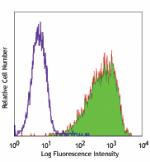
Human teratocarcinoma cell line, NCCIT, stained with MC-813-... -
Alexa Fluor® 647 anti-human SSEA-4
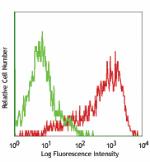
NCCIT (human teratocarcinoma cell line) stained with MC-813-... -
FITC anti-human SSEA-4
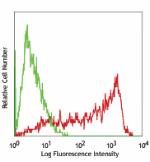
NCCIT (human teratocarcinoma cell line) stained with MC-813-... -
Alexa Fluor® 488 anti-human SSEA-4
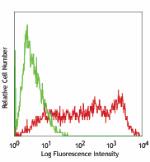
NCCIT (human teratocarcinoma cell line) stained with MC-813-... -
Alexa Fluor® 594 anti-human SSEA-4
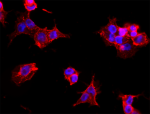
Human stem cell line NCCIT was fixed with 1% paraformaldehyd... -
PE/Dazzle™ 594 anti-human SSEA-4
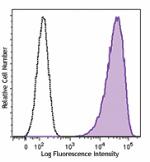
NCCIT cells (human teratocarcinoma cell line) were stained w... -
APC anti-human SSEA-4
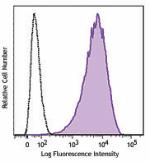
NCCIT cells (human teratocarcinoma cell line) were stained w... -
PE/Cyanine7 anti-human SSEA-4
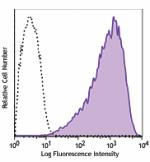
NCCIT cells (human teratocarcinoma cell line) were stained w... -
TotalSeq™-B1467 anti-human SSEA-4 Antibody
 Login / Register
Login / Register 




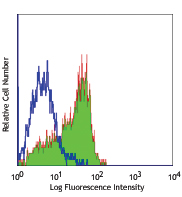
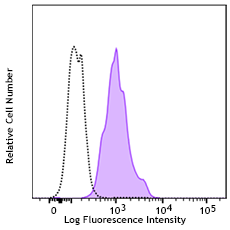
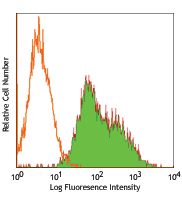
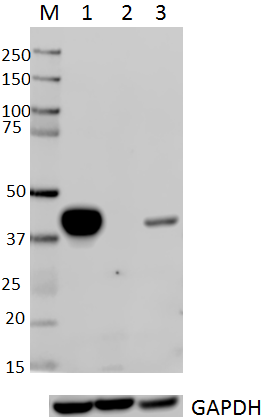



Follow Us